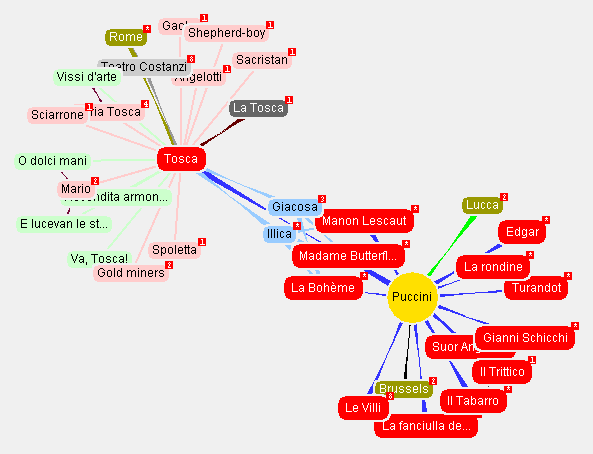The Omnigator is a technology showcase and teaching aid designed to
demonstrate the power of Topic Maps.
It is also used extensively as a topic map debugger and prototyping
tool. Now, with the introduction of RDF support, the Omnigator is
evolving into a multi-purpose Semantic Web Agent.
Features
The Omnigator is omnivorous: It eats anything,
provided it is a topic map – or can be viewed as one! Its most
unique feature is that it lets you load and navigate any conforming
topic map, whether its format be XTM 1.0, XTM 2.0, LTM – or even RDF.
What's more, although it isn't optimized for any particular application,
the Omnigator is able to make reasonable sense out of any reasonably
sensible topic map!
But the Omnigator lets you do far more than simply
browse your topic maps. It supports all aspects of the Topic Maps
standard and has a host of powerful features, such as the ability to
merge topic maps on the fly;
search in ways that make Google boggle;
export to a range of syntaxes;
customize different views;
produce filtered subsets based on scope;
perform semantic validation;
and much more besides.

The most eye-catching new Omnigator feature is the Vizigator, which
produces a graphic visualization of your topic map. The Vizigator is
accessed via the Vizigate
plug-in on any Topic Page. In addition, support for RDF has been
improved through the addition of the RDF2TM plug-in
which allows you to configure your mappings.
Documentation
All these features are documented in the Omnigator User Guide, which also
includes a short practical tutorial on how to create your own topic map
and load it into the Omnigator. The User Guide also describes all the
plug-ins that extend the functionality of the Omnigator in a number of
ways. We encourage you to look through the User Guide in order to avoid
missing out on interesting features that you might not otherwise
discover.
User Interface
The Omnigator's interface has not been designed for end users and
Ontopia does not therefore recommend using the Omnigator for end user
applications. End users should not be aware that the application they
are using is driven by a topic map: They should simply experience an
interface that for once makes it possible to find the information they
are looking for, quickly, easily, and intuitively. The reason you will
see technical terms (like "topic type") in the Omnigator is because it
is intended as a teaching aid and debugger for people like yourself who
want to know what is going on under the covers.
Technology
The Omnigator is built using the tools in the
Ontopia Java toolkit for Topic Maps application
development. It is built on top of the Ontopia Topic Maps
Engine using the Ontopia Navigator
Framework, a toolkit for building web delivery applications. We
recommend using the Navigator Framework for end-user applications
designed around a specific ontology; it's like XSLT for Topic Maps. You
can see examples of such custom applications on our Scripts and Languages and
OperaMap web sites. For
more information about these products and Ontopia's partners around the
world, contact
info@ontopia.net or visit www.ontopia.net.

